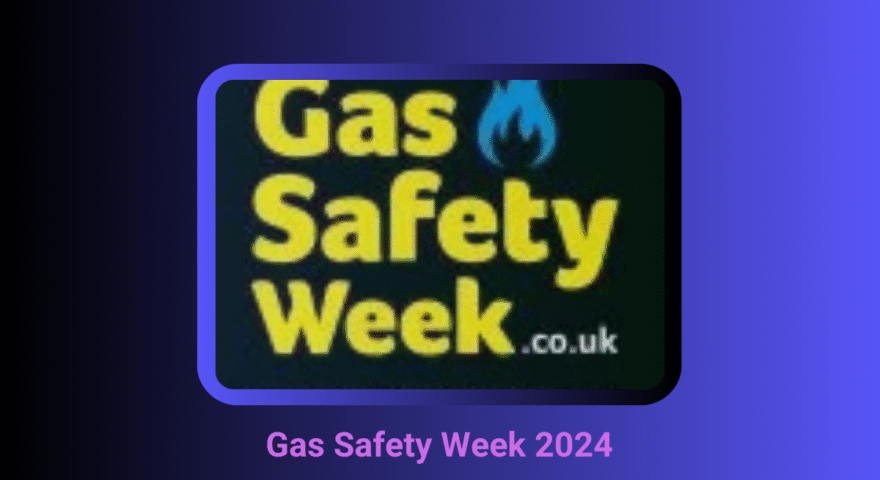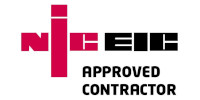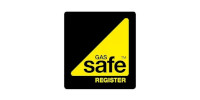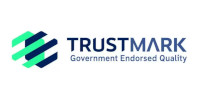Gas Safety Week: 9-15 September 2024

Gas Safety Week: Ensuring Gas Safety in Commercial Premises
Gas Safety Week, taking place from 9th-15th September, is an important annual campaign in the UK designed to raise awareness about gas safety. While much of the focus tends to be on residential properties, it is equally vital for businesses and commercial premises to pay attention to their gas systems. Faulty gas appliances or poor maintenance in a commercial setting can lead to severe risks, such as gas leaks, fires, and carbon monoxide poisoning, putting employees, customers, and the public at risk.
Whether you own a restaurant, office, factory, or school, ensuring gas safety should be a priority, and Gas Safety Week is the perfect time to review your safety procedures.
Why Gas Safety Matters for Businesses
Commercial premises often rely on gas appliances, from heating systems and boilers to catering equipment in restaurants and hospitality venues. The high usage of gas in these environments can increase the risk of faults if appliances are not regularly inspected and maintained.
In addition to the health and safety risks, non-compliance with gas safety regulations can result in fines, legal action, and severe damage to a business’s reputation. By staying informed and proactive, business owners can ensure their premises remain safe for everyone.
Key Gas Safety Tips for Commercial Premises
Arrange Regular Gas Safety Inspections: All gas appliances, installations, and pipework in commercial properties should be regularly inspected by a Gas Safe registered engineer. This includes heating systems, water heaters, cookers, and other gas-operated equipment.
Keep Accurate Maintenance Records: For business owners, it is essential to keep detailed records of all gas safety checks and servicing. This will help ensure compliance with legal requirements and provide evidence of regular upkeep in case of an emergency or inspection.
Install Carbon Monoxide Detectors: Carbon monoxide is a silent killer that can quickly affect a commercial setting, particularly where appliances are in continuous use. Place carbon monoxide detectors near gas appliances and ensure staff are aware of the warning sounds.
Educate Staff on Gas Safety: All employees should be trained to recognise the signs of a gas leak or faulty appliance, such as unusual smells, flickering pilot lights, or visible signs of soot. Ensure that all staff know how to react in the event of a gas emergency, including evacuating the premises and contacting emergency services.
Conduct Risk Assessments: Gas safety should form part of your broader health and safety risk assessments. Identify all gas appliances and assess the potential risks associated with them, ensuring appropriate precautions are in place.
Legal Responsibilities for Employers
As an employer or business owner, you are legally obligated to ensure the safety of gas installations and appliances under the Health and Safety at Work Act 1974 and the Gas Safety (Installation and Use) Regulations 1998. Failing to meet these requirements can lead to penalties and put your business and employees in harm’s way.
You must also ensure that all gas-related work is carried out by Gas Safe registered engineers. It’s important to verify that any engineer working on your premises has the necessary qualifications for commercial systems.
Gas Safety in the Hospitality Industry
Gas safety is especially critical in restaurants, hotels, and catering businesses, where gas appliances are often in constant use for long periods. Kitchens rely on gas ovens, hobs, and water heaters, and any fault in these systems can lead to accidents or service disruptions. Regular inspections and servicing are essential to avoid the risk of gas leaks, which can harm customers, staff, and the business’s reputation.
Supporting Vulnerable Businesses
Gas Safety Week also highlights support for businesses that may face challenges in maintaining their gas safety obligations. Small businesses, especially those recovering from difficult trading periods, can benefit from resources and advice during the campaign. Various grants or financial assistance may be available to help with the cost of maintaining gas safety systems, ensuring that no business is left behind.
Gas Safety Week: Protecting Your Home and Family
Why is Gas Safety Important?
Faulty gas appliances, such as boilers, cookers, and heaters, can lead to gas leaks, fires, and even carbon monoxide poisoning. Carbon monoxide is a colorless, odorless gas that can be deadly if inhaled in large amounts. Each year, preventable gas-related accidents occur, but through proper maintenance and safety checks, these risks can be minimised.
Gas Safety Week highlights the dangers and encourages everyone to take action. By raising awareness of potential hazards, the campaign aims to ensure that people across the country feel confident in keeping their homes and workplaces safe.
Key Gas Safety Tips
Get Annual Gas Safety Checks: Make sure that your gas appliances are serviced regularly by a Gas Safe registered engineer. This ensures they are running safely and efficiently.
Install Carbon Monoxide Alarms: These alarms are essential for detecting carbon monoxide leaks. Make sure to place them in rooms with gas appliances.
Look Out for Warning Signs: Yellow flames instead of blue, pilot lights that frequently blow out, and black marks around the appliance are all signs that your gas appliance needs to be checked.
Know the Signs of Carbon Monoxide Poisoning: Common symptoms include headaches, dizziness, nausea, breathlessness, and confusion. If you experience these symptoms and suspect a gas leak, leave the house immediately and call for help.
Check the Engineer’s Credentials: Always ensure that any engineer who works on your gas appliances is registered with Gas Safe Register. You can check their ID or search for them on the Gas Safe website.
Landlords’ Responsibilities
If you are a landlord, it is your legal responsibility to ensure the safety of your tenants. This includes making sure all gas appliances, flues, and pipework are maintained and that an annual Gas Safety Certificate is provided to tenants. Gas Safety Week is a perfect opportunity to remind landlords to stay on top of their obligations.
Support for Vulnerable Groups
Gas Safety Week also focuses on supporting vulnerable groups, such as the elderly and low-income families, who may be at greater risk due to lack of access to proper maintenance or safety information. There are grants and schemes available to help ensure gas safety in these homes, and the campaign helps connect those in need with the right resources.
If you have question about existing installation or are looking to replacing an existing system, please contact our team on 01444 390593 or our contact page via the website https://www.bsefm.com/
Stay safe and make gas safety a priority in your business this Gas Safety Week!
Talk to Our Expert Team
If you would like to learn more about the range of services we offer, please get in touch for an informal discussion about your needs and requirements.















